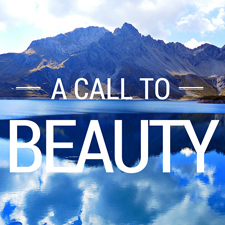I’ve been feeling fairly judgmental since returning from India. And I’m wondering if one of the reasons—in addition to dealing with jetlag and reassimilating into my old life—is that I often felt judged in Bangalore.
Staring is common throughout India (as noted by GirlUnstoppable, Full Stop India and others), and I experienced my fair share. Most days, I ignored it. Other days, particularly when young men scrutinized me from head to toe for minutes at a time, I began to consider the merits of donning a burqa. For an American woman who does not generally seek male attention—I’m happily married, after all—it was an unusual sensation.
My husband had a far more negative response to it. While I joked about it, he was horrified on my behalf and kept asking what we should do when we went out: Stare back? Say something? I told him to ignore it, but I did consider amusing alternatives like snapping photos for a wall of shame.
I’m familiar with attracting attention while traveling. In Ghana, little kids followed me around and called me obruni; adults were often friendly and curious. In Kochi, India, where we spent Christmas, children and young adults whispered amongst themselves when they saw us and yelled, “Hello,” after we passed by. Almost everywhere we’ve been in the developing world, my husband Brian—who’s 6’4″—gets loads of attention.
In Bangalore the interactions felt different. There, I alone was the recipient of long, hard stares while Brian was virtually ignored. And I’m thankful it was just stares, given others’ experiences. But I walked away from each encounter feeling like I was being judged, treated as not quite human, or as Sarah Elizabeth Webb suggests, was part of a human zoo.

Photo licensed and adapted from Eric Parker, who says he was fascinated by women wearing burqas in India, as I was. My reason? They often had colorful pants or shoes underneath, hinting at colorful and confident personalities.
My experiences in India remind me of an interview I watched between Jonathan Fields and Pamela Slim, author of Escape from Cubicle Nation and a new book called Body of Work. Jonathan shared a personal story about a friend who had been born into an upper middle class family and, throughout his life, struggled with substance abuse, had bouts of homelessness, and ultimately died of an overdose. Jonathan acknowledged that he had looked down at homeless people in the past until he realized, “Who am I to judge?”
Yep.
Although I have a lot of opinions about life, I generally try to live and let live; that is I try to avoid imposing my views on others. It’s not always easy—and I acknowledge that by writing this post, I’m effectively judging the men who stared at me. (Didn’t I already tell you I was judging others lately?) But that is not my intention and I certainly don’t want to suggest anything universally negative about Indian men or men in general. This post is about how I feel now and felt then, and how I choose to think and behave instead.
I strive to cultivate acceptance, compassion and non-judgment because a world where we judge others and relegate entire categories of people to villainy is not one in which I choose to live.
Sure, we all have quick gut-level responses and thoughts, which are based on experiences and upbringing but, if we step back from those initial impressions and try to look from another perspective, I think we can learn a lot about ourselves and humankind. There’s also a difference between acknowledging someone’s actions and making assumptions or judgments about someone based on his/her appearance, culture, religion, ethnicity, viewpoints, circumstances, or even actions.
As Pam Slim said in the interview:
“There’s no difference at all between any human being that is here on earth. Nobody is higher or lower than another.”
Thank you, Pam, I couldn’t agree more.
And while I acknowledge that I’ve been feeling more judgmental than usual right now, I’m going to take a step back and cultivate more acceptance and compassion for myself—so that I may better apply acceptance, compassion, and non-judgment to others.
Is there anyone or anything you’ve judged lately that you would look at from another perspective now? I’d love to know.
Cheers,


















Kate Watson - Well said, Jody. We are all human and curiosity is in our nature. Thanks for chiming in and reminding me that staring doesn’t have to mean judgment!
Jody Yarborough - Kate, you know I can relate to this post. Having a disability and looking different all my life I have always been stared at. Fortunately, since a young child, I have been surrounded by people and peers who saw me beyond what I looked like, and accepted me for my character, intellect, personality, and their version of how they saw me. That is one thing I have learned about life… how you see yourself is far different than how others see you. Not as a negative or a positive, just different. So from that perspective it affirms how and why I really don’t absorb those stares. I just let them be. I don’t feel defined or judged by them. And conversely to your effort of non-judgement (although I applaud it) it doesn’t keep me from judging others. After all, I stare too… at really fat people, at burn victims, at someone super tall, or super short… It is part of the human curiosity. Now, I don’t value them as less than, and I hope I never offend, for that is not my intention. But I am human. And there is great freedom in that reconciliation.